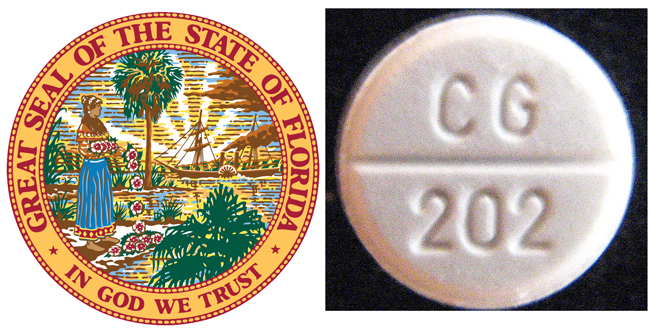
Jim Saunders
Health News Florida
The Florida Department of Health took a verbal bashing Tuesday from two Republican senators, who said the agency was too slow in carrying out laws aimed at curbing the state’s notorious pill mills — though lawmakers and Gov. Rick Scott have added to the delays.
Mike Bennett of Bradenton and Don Gaetz of Niceville, members of the Senate Health Regulation Committee, focused on delays in drawing up rules needed to operate a prescription-drug database and to tighten regulations on pain-management clinics.
Click On:
- How Tallahassee’s Addiction to Cost-Benefit Analyses Delays Pill Mills Crackdown
- How Sheriff Fleming and FDLE Are Manipulating Press and Public Over Pill Mills
- Pill Mills vs. Pain Management in Flagler: The Difference From the Doctors’ Perspective
- Don’t Call Them Pill Mills: Palm Coast’s Pain Management Practices Recoil at Bad Rap
Lawmakers in 2009 passed a law to create the database — which could help track who receives prescriptions for potentially deadly drugs — but a rule has not been finalized. The project has also been delayed by other problems, including bidding disputes among potential contractors.
Bennett questioned why it took so long to develop a rule for the database, which was originally supposed to start operating Dec. 1.
“It drives me nuts,” he said during a presentation to the committee by two department officials.
 Similarly, Gaetz criticized that it took more than a year to hold eight hearings on rules that will affect doctors and clinic operations. The Board of Medicine and the Board of Osteopathic Medicine, which are housed in the department, had a joint committee developing those rules.
Similarly, Gaetz criticized that it took more than a year to hold eight hearings on rules that will affect doctors and clinic operations. The Board of Medicine and the Board of Osteopathic Medicine, which are housed in the department, had a joint committee developing those rules.
Larry McPherson, executive director of the Board of Medicine, said Gaetz raised a “good point.” But he said the rule-making process involved gathering information and public comments to help develop the rules — all while needing to follow legal requirements for giving adequate public notice about the hearings.
The state’s rule-making process has become controversial in recent months because Scott and some lawmakers argue that it could lead to over-regulation of industries. Generally, rules are needed to provide the specific guidelines for carrying out laws, which often are broadly written.
As part of that debate, lawmakers in November decided to require legislative approval for rules that would have significant costs for businesses. Former Gov. Charlie Crist vetoed a similar measure last year, but the legislative decision overrode that veto.
While the legislative override affected hundreds of rules from many state agencies, one that attracted immediate concern was the freeze on DOH rules affecting doctors and pain clinics.
In DOH’s defense, Sen. Thad Altman, R-Melbourne, noted that the veto-override might have made it more complicated to pass pill-mill rules. Also, he said that if agencies don’t follow the proper process in drawing up rules they can face legal challenges.
“If you don’t do it right, you can be tied up for a very long time in the administrative-hearing process,” Altman said.
Rebecca Poston, program manager of the Florida Prescription Drug Monitoring Program, said it does not appear that the database rules would be delayed just by the legislative override because they are not expected to increase business costs and thus would not trigger the need for legislative approval.
But then Scott issued an executive order last week freezing all rules until they can be reviewed. During a meeting Tuesday night with Senate Republicans, Scott said he is trying to make sure regulations don’t “kill jobs.”
Sen. Mike Fasano, a New Port Richey Republican who has been a leader in writing pill-mill laws during the past two years, said a Scott decision to eliminate the state Office of Drug Control also could affect efforts to crack down on clinics.
“It was the Office of Drug Control that led the charge in fighting the unscrupulous characters in the pain-management industry,” said Fasano, who also serves on the Health Regulation Committee.





























Leave a Reply